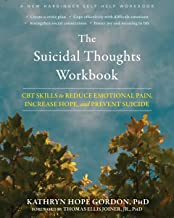Suicidal Behavior Disorder
Resources for Patients and Caregivers
Suicidal ideation is when you think about killing yourself. The thoughts might or might not include a plan to die by suicide. You may have heard suicidal ideation referred to as “suicidal thoughts.” Not everyone with suicidal ideation acts on it. But if you or a loved one has it, you should get help right away.
Suicide is death caused by an intentional act of self-harm that is designed to be lethal. Suicidal behavior encompasses a spectrum of behavior from suicide attempt and preparatory behaviors to completed suicide. Suicidal ideation refers to the process of thinking about, considering, or planning suicide.
Cluster Number:
Wiki Number: 2-Suicidal (Suicide) Behavior Disorder
Diagnosis:
US Patients: In 2010, the US appeared to be the only country where guns were most-likely.
World Patients: 0.5-1.4% of all deaths; 828,000 worldwide in 2015.
Sex Ratio: M4X+;W 10th leading cause of death.
Age Onset: Highest ages 15-30 or beyond age 70.
Brain Area: Reduced brain0derived neurotropic factor in the hyppocampus and prefrontal cortex
Symptoms: “Suicide is intentionally causing one’s own death.” Serotonin is also low.
Progression: Brain health diagnoses, substance use, and withdrawl can be factors.
Causes: impulsive acts from stress, relationship problems, or bullying. //Reduce by drug treatment, economic development.
Medications: Reduce access to firearms, opioids, pesticides; adding barriers on bridges and subways,
Therapies: Prevention efforts include limiting access to methods, treating mental disorders, media and economic help.
Youtube Video:
Mood Disorders and Suicide
Youtube Video:
What is Suicidal Ideation?
Amazon or Library Book: The Suicidal Thoughts Workbook
Click the book to link or order from Amazon.

